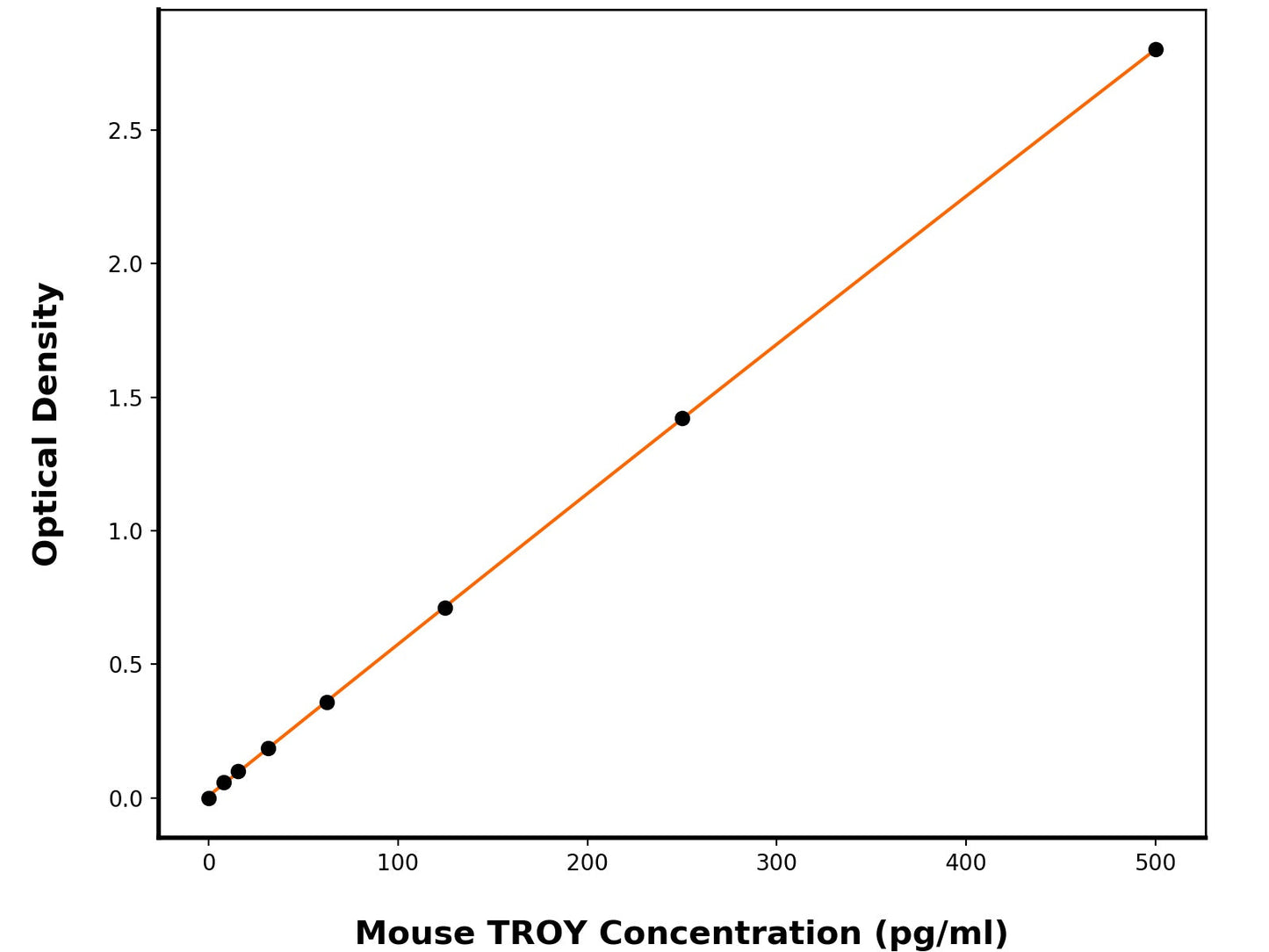1
/
of
1
Mouse Tumor Necrosis Factor Receptor Superfamily Member 19 (TNFRSF19) ELISA Kit
Mouse Tumor Necrosis Factor Receptor Superfamily Member 19 (TNFRSF19) ELISA Kit
This ELISA kit is designed to detect Mouse Tumor Necrosis Factor Receptor Superfamily Member 19 (Mouse TNFRSF19). The assay plate has been pre-coated with mouse anti-Mouse TROY monoclonal antibody. When the sample containing TROY is added to the plate, it binds to the antibodies coated on the wells. Then, a horseradish peroxidase conjugated mouse anti-Mouse TROY Antibody is added to the wells and binds to TROY in the sample. After washing the wells, substrate solutions are added, and the color intensity is directly proportional to the amount of Mouse TROY present. The reaction is stopped by adding an acidic stop solution, and the absorbance is measured at 450 nm.
Catalog No:
BPE298
Regular price
$624.00 USD
Regular price
$480.00 USD
Sale price
$624.00 USD
Unit price
/
per
2 weeks
Couldn't load pickup availability
Product Details
Species Reactivity
Mouse
Sensitivity
1.5 pg/mL
Detection Range
7.81-500 pg/mL
Sample Type
Serum, plasma, cell culture supernates
Incubation(s)
3.5 hour(s)
Research Areas
Cancer, Cell Biology, Signal Transduction
Background
Tumor necrosis factor receptor superfamily, member 19 (TNFRSF19), also known as TAJ-alpha or TROY, is a member of the TNF-receptor superfamily. TNFRSF19/TROY expression is detected in the pulmonary epithelium and the ductal epithelium of the prostate and parotid glands. TNFRSF19/TROY expression is detected in some adenocarcinoma cell lines that arise from this tissue. It has been shown to interact with TRAF family members, and to activate JNK signaling pathway when overexpressed in cells. TNFRSF19/TROY is capable of inducing apoptosis by a caspase-independent mechanism, and it is thought to play an essential role in embryonic development. TNFRSF19/TROY was negatively regulated by adipogenic transcription factor CCAAT/enhancer-binding proteins (C/EBP). TNFRSF19 signals activation of the Jnk pathway and induces cell death. Overexpression of TNFRSF19 also signals NFB activation, comparable and similar to that by p75NGFR. TNFRSF19/TROY is capable of activating key signaling pathways of the TNF receptor family, and its predominant expression patterns suggest that it plays a role in the growth and regulation of epithelial tissues.
Shipping Condition
Shipped on cold gel packs.
Storage Condition and Shelf Life
This product can be stored at 2-8C.
Analyte
Tumor necrosis factor receptor superfamily member 19
Regulatory Status
For Research Use Only

